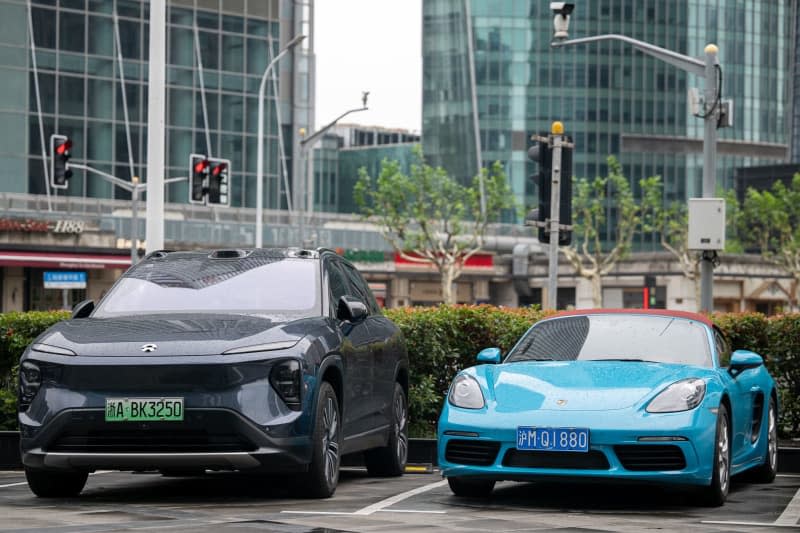
European Union countries on Friday paved the way for additional tariffs of up to 35.3% on battery-powered electric vehicles imported from China, EU diplomats told dpa.
The European Commission had announced the extra tariffs after an investigation accused Beijing of subsidizing domestic electric car manufacturers and thus distorting the market in the EU.
The tariffs are set to apply for five years in addition to the EU’s standard 10% import levy on cars.
Whether the import tariffs, which are likely to exacerbate tensions between the EU and its largest trading partner, will come into force at the beginning of November now depends on the commission.
The plans, which caused a stir in EU capitals and among carmakers, can still be dismissed if Brussels reaches a solution with China at the negotiating table.
In a statement after the vote, the commission said that “the EU and China continue to work hard to explore an alternative solution.”
This solution however would have to be fully compatible with the rules of the World Trade Organization, adequate, monitorable and enforceable, the commission said.
In order to stop the new tariffs, at least 15 country delegates out of 27, who together represent 65% of the EU’s population, would have needed to vote against them.
However, only five countries representing roughly 23% of the EU’s population did so, while 10 countries voted in favour and 12 abstained, EU diplomats told dpa.
Berlin, which voted against the measure, repeatedly called for further talks with Beijing amid concerns over retaliatory actions which could hurt the country’s big car industry.
After the vote, German Finance Minister Christian Lindner warned of an escalation in trade policy disputes, asserting in a post on X that the European Commission should not trigger a trade war. “We need a negotiated solution,” he wrote.
German carmakers, which include brands like Volkswagen, BMW and Mercedes, generally opposed the tariffs as they have invested in the Chinese market and have relied heavily on sales there.
VW and BMW both called for a resolution to prevent a trade conflict after the vote.
“We appeal to the European Commission and the Chinese government to continue the ongoing negotiations for a political solution constructively,” VW said in a press release. “The joint aim must be to prevent any protective tariffs and thus avoid a trade conflict.”
“The planned tariffs are the wrong approach and would not improve the competitiveness of the European automotive industry,” VW added.
BMW warned of negative consequences. “Today’s vote is a fatal signal for the European automotive industry,” said company boss Oliver Zipse. “Now a quick solution is needed between the European Commission and China to prevent a trade conflict that will ultimately only have losers.”
The German Association of the Automotive Industry (VDA) also warned of negative effects, with VDA President Hildegard Müller saying in a statement that this was “another step away from global cooperation.” She claimed that the potential damage would therefore be greater than the possible benefit of the instrument.
Müller called on both sides to prevent an escalation through negotiations, adding, “ideally avoid the tariffs to prevent risking a trade conflict.”
She said that solutions must be found through constructive talks. Both sides, China and the European Union, she asserted, must approach each other.
In the end, Germany was unable to assert its position, as other big EU countries had voiced support for the tariffs ahead of the vote.
French President Emmanuel Macron was among those who had expressed his support for punitive measures against China’s e-cars. The Italian government had said it is in favour of the tariffs.
European carmakers are struggling to substantially boost their sales of battery-powered cars, with Chinese electric cars being on average 20% cheaper than EU models, according to the commission.
Advocacy group Transport & Environment said on Friday, that the potential new tariffs need to be paired with stricter emission targets to successfully increase sales of electric vehicles made in Europe.
Stricter CO2 limits for vehicles are set to enter into force in the EU in 2025.
However some carmakers have called for the new limits to be delayed to boost the sale of most profitable combustion engine vehicles instead, T&E writes.







